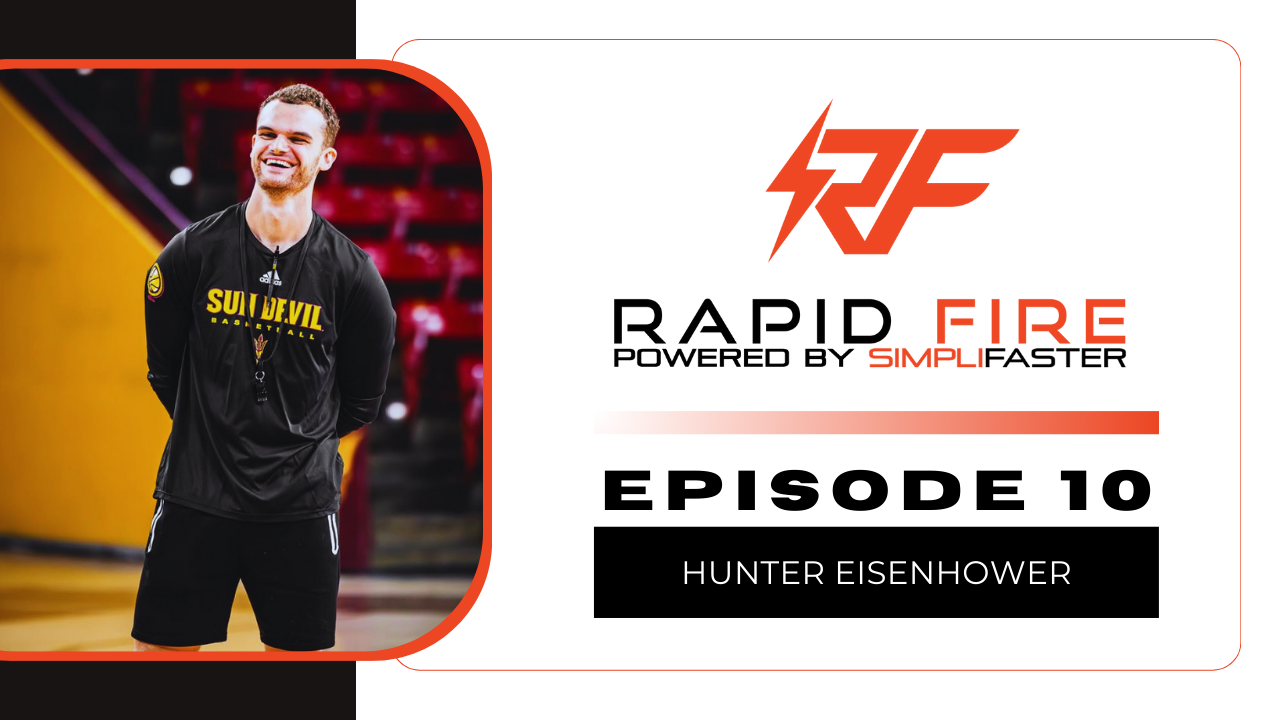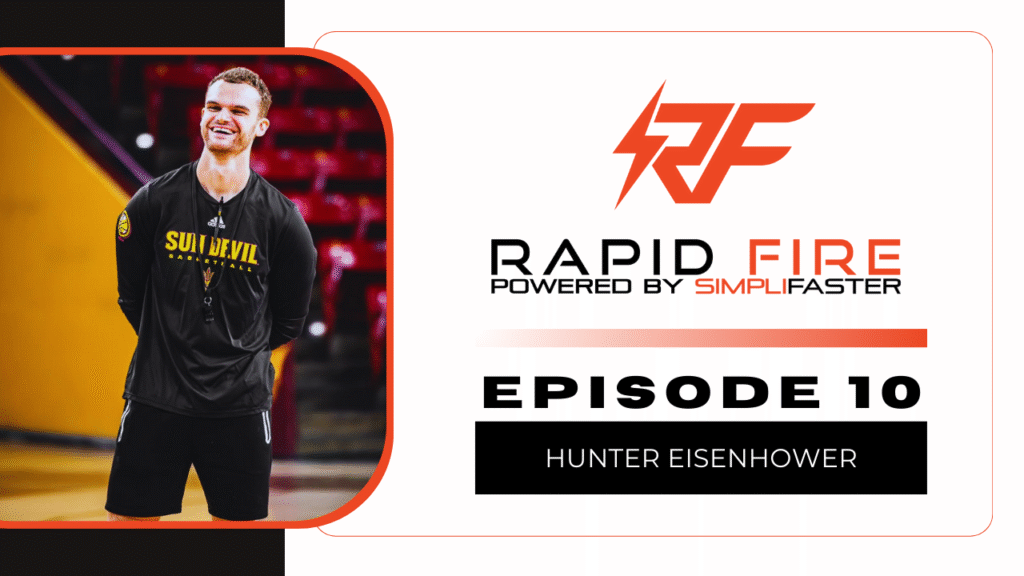In this episode, Hunter Eisenhower, Associate Head Coach of Sports Performance at Arizona State, breaks down his innovative Force System, a training framework built on four key pillars: high force, fast force, slow force, and human force. He explains how this system helps tailor training to each athlete’s unique strengths (superpowers) and weaknesses (kryptonite), ensuring a more individualized approach to performance development.
Hunter dives into the science of jump testing, debunking common myths about force plates and data interpretation. He also challenges the overemphasis on traditional maximal strength training, arguing that for many athletes, managing practice fatigue has a far greater impact on performance.
The episode wraps up with a preview of Hunter’s upcoming mentorship program, where he’ll offer deeper insights into the Force System and its real-world application for coaches and athletes.
Key Takeaways
- How to use The Force System to customize training based on athletes’ superpower or kryptonite.
- How to test and interpret jump data using force plates, myths & misconceptions of testing and tracking data.
- The impactful role of managing practice fatigue and how a performance coach and start to influence these coaching decisions.
- Is maximal strength training overrated for many athletes?
- Hunter’s mentorship program will provide in-depth insights into the Force System.
Rapid Fire Excerpt: The impactful role of managing practice fatigue and how a performance coach and start to influence these coaching decisions.
Rapid Fire Excerpt: Maximal strength for the vast majority of athletes is overrated.
Stream the episode on Spotify or iTunes, and make sure to follow Hunter on social media!
Since you’re here…
…we have a small favor to ask. More people are reading SimpliFaster than ever, and each week we bring you compelling content from coaches, sport scientists, and physiotherapists who are devoted to building better athletes. Please take a moment to share the articles on social media, engage the authors with questions and comments below, and link to articles when appropriate if you have a blog or participate on forums of related topics. — SF








